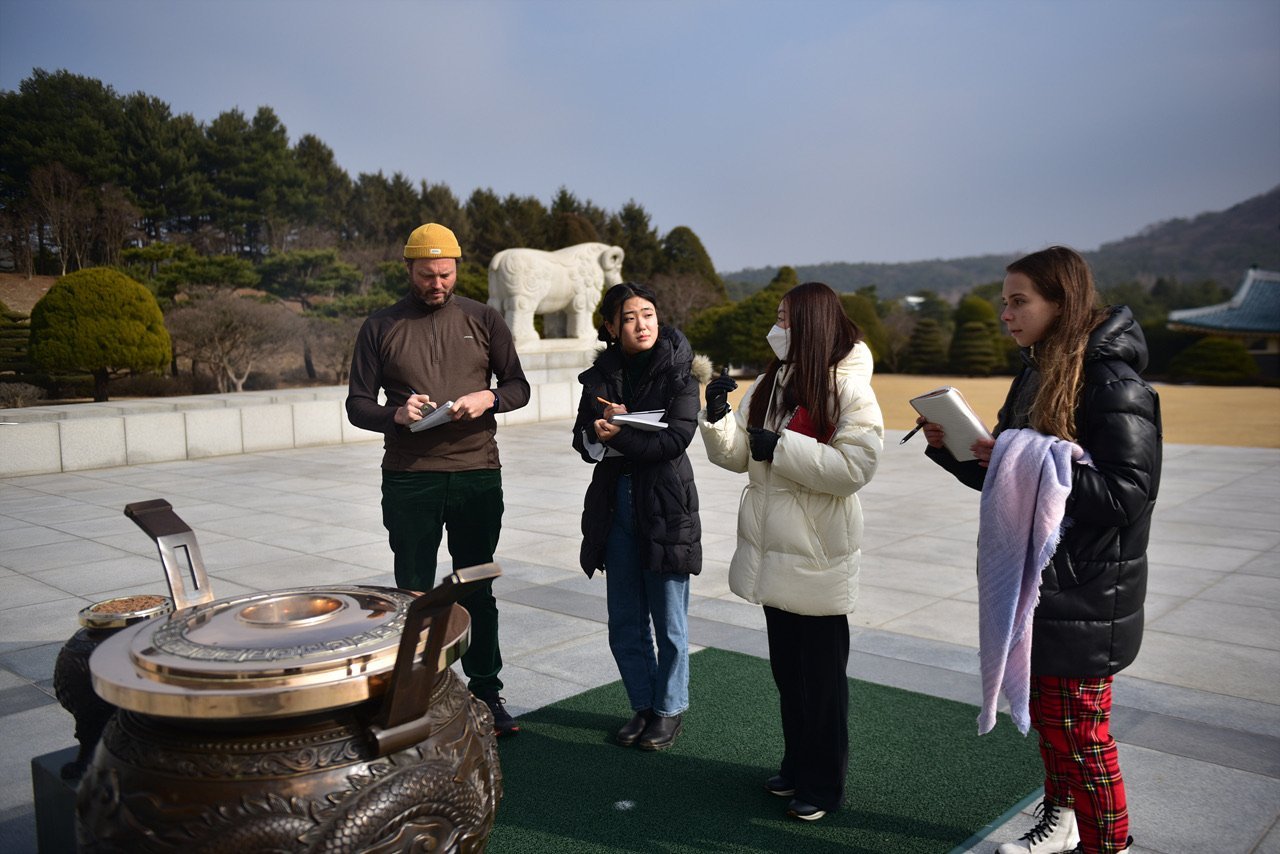Restorative Justice for Massacres in Korea
Last updated July 2024
In 2023, UNHR collaborated with students from Seoul National University and Wesleyan University on a report summarizing the abuses perpetrated by the United States on the Korean Peninsula from the end of World War II through the Korean War. The report was designed to highlight a missing piece in Korea’s transitional justice equation: the United States’ role in atrocities.
A mere five years after the liberation of Nazi death-camps in Europe, U.S. soldiers were meticulously documenting, photographing, approving, and coordinating organized extermination campaigns of South Korean citizens. After assuming control over the southern half of the Korean Peninsula following World War II, U.S. forces and their Korean allies began to root out political opposition to a divided Korea, often by means of violent, authoritarian methods. In 1948, thousands of residents of the southern Korean island of Jeju were killed for their political activities. The U.S. military oversaw these massacres, supervising the forced displacement, starvation, and mass executions of thousands of civilians. This violence spread through the start of the Korean War. Up to 300,000 Koreans were killed in these supposedly anti-Communist purges.
During the Korean War, the United States also committed significant atrocities against Korean civilians. In No Gun Ri, for example, U.S. forces summarily executed hundreds of civilians fleeing the front lines. Korean human rights defenders have documented other similar massacres. This topic remained highly taboo in South Korea until its transition to democracy in the late 1980s.
Though these stories began coming to light in the 1990s, the United States has never fully acknowledged, nor been held to account for, the grave human rights abuses, war crimes, and crimes against humanity that it unleashed against civilian populations on the Korean peninsula.
UNHR's research seeks to shed light on this overlooked and actively suppressed chapter of recent history. Wesleyan students traveled to South Korea in January and March 2023, splitting their time between Seoul, Daejeon, Sejong, Asan, and Jeju-do. Students interviewed activists, local historians, survivors, and family members of those killed. In September 2023, we released our report, 75 Years of Silence: The Continuing Need for Acknowledgment, Accountability, and Reconciliation between the United States and the Korean People. We timed the release to coincide with the presentation and report of the UN Special Rapporteur on Truth, Justice and Reparation based on his country visit to Korea at the UN Human Rights Council in Geneva.
Project work now focuses on building meaningful bridges between civil society in Korea and the United States to continue to urge the U.S. government to take responsibility for its abuses against Korean civilians beginning over eight decades ago.




